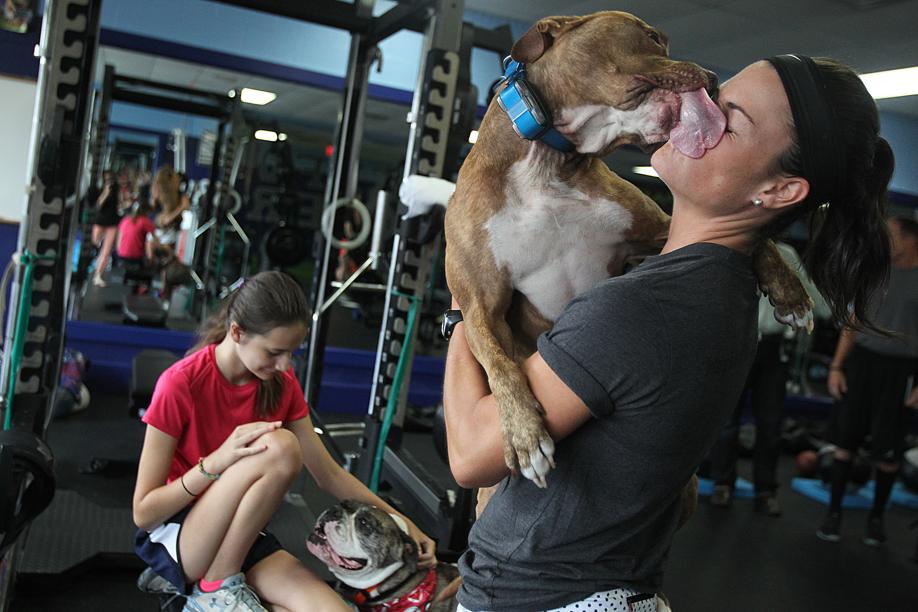It seems harmless enough. You get nose to nose with your dog and talk to it as it laps at your mouth and cheeks with its tongue, or you come home from work and bring your lips to your dog’s in a greeting to say hello.
It may feel like the ultimate display of affection, but when it comes to such kisses, experts caution: Beware of dogs.
Dr. Neilanjan Nandi, an assistant professor of medicine at Drexel University College of Medicine in Philadelphia, said in an e-mail that most animals’ mouths are host to “an enormous oral microbiome of bacteria, viruses, and yeast.’’ Nandi says a dog’s saliva has proteins that may help cleanse or heal its own wounds, but in a paragraph titled “Why Not to Make Out With Your Pet,’’ he noted, “There are some organisms unique to dogs that we were simply not meant to tolerate or combat.’’
Some bacteria in dogs’ mouths are zoonotic, meaning the animals can pass them to humans and cause disease. Some common zoonotic bacteria include clostridium, E. coli,salmonella and campylobacter, which can cause severe gastrointestinal disease in humans, said Dr. Leni K. Kaplan, a lecturer of community practice service at Cornell University’s College of Veterinary Medicine.
So should you not let your dog lick you at all? Not entirely.
“When dog saliva touches intact human skin, especially in a healthy person, it is extremely unlikely to cause any problems, as there will be very little absorption through the skin,’’ Kaplan wrote in an e-mail.
But a dog’s saliva and pathogens can be absorbed more easily through the mucous membranes of a person’s nose, mouth, and eyes. Though illnesses transmitted this way are rare, Kaplan said it was best to avoid having your dog lick those parts of your face.
John Oxford, a professor of virology at Queen Mary University of London and an expert in microbiology, said he would never let a dog lick his face, The Hippocratic Post reported.
“It is not just what is carried in saliva,’’ he said. “Dogs spend half of their life with their noses in nasty corners or hovering over dog droppings so their muzzles are full of bacteria, viruses, and germs of all sorts.’’
If you have cats, though, kiss away. Cats do not eat feces, and humans are therefore unlikely to become infected by parasites from them, according to the website petMD.
Cats’ mouths do harbor Pasteurella, which can cause infections of the skin and lymph node, and Bartonella henselae, a bacterium that can cause a severe skin and lymph node infection known as cat scratch fever, the website reported. Most of those infections come from bites or scratches.
As far as your dog goes, experts recommend a few precautions:
■ Make sure your pet is current on all vaccines.
■ New pets should undergo deworming.
■ Keep your pets away from the feces of other animals.
■ Wash your hands regularly with soap and water.




